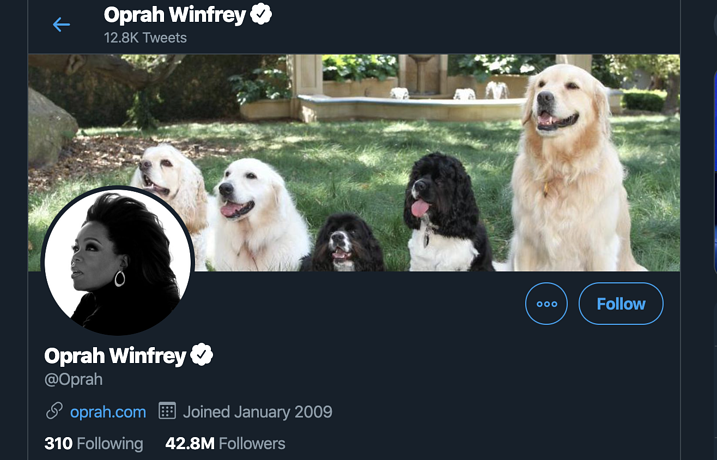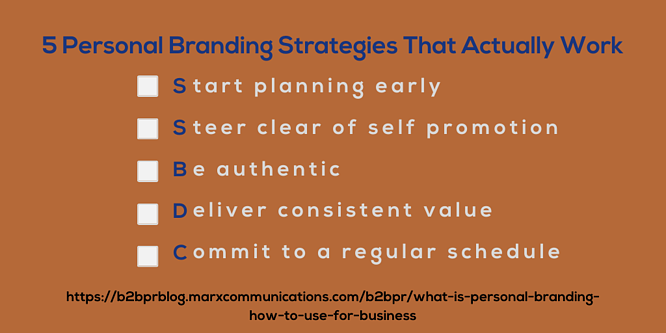If you think that personal branding just benefits you, then you’re mistaken. It’s a strategy with far-reaching benefits. But to see why, let’s answer the question, what is personal branding and then examine how a personal brand can support our business.
In this article, we’ll provide a solid personal branding definition and practical ways your personal brand can be help your business brand. Then, we’ll top it off with some personal branding examples of people who have rocked their personal brand and used it to bolster their business.
But first, we have to answer the question, what is personal branding?
Key Takeaways:
- Personal Branding Defined: It’s about promoting your unique blend of skills, experiences, and personality traits to stand out in your industry.
- Benefits Beyond the Individual: While personal branding focuses on the individual, its advantages extend to enhancing business reputation and trustworthiness.
- Authenticity is Key: Genuine self-presentation fosters relatability and trust, crucial for connecting with your audience on a personal level.
- Continuous Effort Required: Building and maintaining a personal brand is an ongoing process that demands consistency in content and engagement.
- Strategies for Success: Planning, avoiding self-promotion, being authentic, delivering consistent value, and adhering to a regular schedule are pivotal.
- Influence on Business: A strong personal brand can significantly impact your business by building trust, enhancing reputation, and fostering loyalty among your audience.
- Inspirational Examples: Oprah Winfrey, Gary Vaynerchuk, and Tim Ferriss demonstrate the transformative power of effective personal branding on business success.
- Actionable Steps: Begin with early planning, focus on authenticity, deliver value consistently, and maintain a regular engagement schedule to build a robust personal brand.
What is Personal Branding?
Personal branding is the strategy of establishing and promoting you, which includes your industry expertise, skills, experience, the kind of person you are and what you stand for.
Some people balk at the idea of mixing their business and personal backgrounds, but in reality, it’s what today’s audiences need. If people just wanted to know what kind of business person you are, then a short bio on your company’s website would be enough.
People are curious to learn more about you beyond your work. They want to understand what sets you apart from others in your industry. This could involve seeing you connect with them through videos or engaging with you on social media. It may also include getting a glimpse of what happens behind the scenes, like your passions and causes.
Branding yourself is not a once-and-done deal. You can’t do it for 6 months and then call it quits. It’s an ongoing process of developing and managing your image through social media, content marketing, public speaking and other tactics. In short, you need to be in it for the long haul.
Let’s now shift gears and talk about how a personal brand can affect your business.
How Does Your Personal Brand Affect Your Business
What is a business? Is it the logo? Is it the building that houses it? We would all of course answer with a resounding no.
We know it’s the people behind the name who make a business what it is. And what’s more, before they interact with a business, modern audiences want to know the folks behind the scenes — especially the CEO and other executives.
And what they learn can make the difference between trusting in and working with a brand or moving on to another.
What do people want to see in your personal brand? They’re eager to know what makes you you — your sense of humor, your passions, your thoughts. Of course, the emphasis would be on your business and industry, but by sprinkling in some personal details and anecdotes you’ll add a relatable, human touch.
To sum it up, the more audiences see your personal side, they’re more likely to feel a connection with and trust you.
This is why a personal branding strategy has the potential to impact your business’s bottom line.
But how can you build a personal brand that effectively builds a connection with your target audience and gets results for your brand? Let’s look at 5 strategies you can start implementing today.
5 Personal Branding Strategies That Actually Work
1. Start Planning Early
Start thinking about what you want your reputation to be and how you want it to impact your company. Without planning, you could end up figuratively setting yourself into a mold that is hard to break later.
What do I mean? Basically, you could come away with a reputation that is harder to change down the road. First impressions are everything, so when it comes to your professional reputation, it’s best to plan ahead.
Ask yourself these questions:
- How do I want people to see me?
- What qualities do I want to be associated with my personal brand?
- What parts of my life will I share with my audience?
- What area of expertise do I want to be known for?
- How will I showcase that expertise?
- What channels will I use?
If possible, it’s best to decide all of this before your personal brand goes live. It is extremely difficult to change your reputation after it has been established.
2. Steer Clear of Self Promotion
By its very title, personal branding may first come off as self-centered. But there’s a definite difference between offering real value and shameless self -promotion. In essence, personal branding is more like building a solid reputation. And shameless self promotion is counterproductive to that. Instead of being trusted, self-promotion — especially if you use false claims — makes you appear as a scam artist.
What should you do instead? When you speak to your audience, whether it’s through content, social posts or at an event, focus on being honest, authentic and transparent. Give your audience insights that can help them in their personal journey. Share personal experiences that enhance the information you give. Avoid anything that could be viewed as a sales pitch.
How does this help your brand? As people are attracted to your message and personality, they will naturally transition to your brand. If they need help and want to hire a company, yours might very well be the first that comes to mind. And because you’ve never pressured them with promotion, you will be more trusted.
3. Be Authentic
While we touched on this, let’s take a deeper look at what it means to be authentic and why this matters.
Authenticity does not mean polished and always picture-perfect. In fact, it is the opposite. It shows people the real you, flaws and all.
We’ve all seen videos of people who are super stiff and over-rehearsed — and it’s almost painful to watch. On the other hand, when someone is relaxed, with no script, speaking from the heart, it is inherently more powerful. Even if their speech and grammar isn’t perfect, we’re drawn to them.
Why is that? Because such authenticity makes someone more down-to-earth and relatable. You can picture that person as your friend. That, paired with their expertise, makes you take notice when they give advice.
4. Deliver Consistent Value
Of course, authenticity and transparency will only take you so far. If you don’t back up your relatable image with solid value, your audience won’t stick around.
What do we mean by value? You need to deliver content and advice that will help your audience to succeed. It could providing solutions to a common problem or insights into avoiding industry pitfalls. Do your research and uncover what issues and problems exist in your industry, as well as what fears people have. Then, use your expertise to provide solutions and allay fears.
The most common way to deliver this value is through content. Choose a format that will engage your audience. It could be blog posts, infographics, videos, podcasts or some comination. or a combination .
5. Commit to a Regular Schedule
If you want to build a personal brand that makes a difference, then you can’t disappear for long periods and then re-appear randomly with new content. You need to be dedicated to a regular schedule. Whether posting on social media, writing blogs, or delivering video content, your audience needs a regular connection to you.
This will also show them what kind of business you run. The more consistent you are, the more your audience will view your business as trustworthy and on the ball.
But admittedly, all of us get busy from time to time. The best way to keep up with your audience is to put your schedule down in writing.
3 Exceptional Personal Branding Examples to Imitate
1. Oprah Winfrey
Even after years of her show being off the air, Oprah Winfrey is still a household name. Because she has won the trust of her audience through years of honest and authentic engagement, her business ventures are known to have the Midas touch of success. From her O magazine to her podcast, as well as her various partnerships through the years, her reputation has always provided a solid foundation.
2. Gary Vaynerchuk
With nothing more than a passion for wine and a good idea, Gary Vaynerchuk created his own YouTube channel, entitled, Wine Library TV. Over ten years later, he has created over 1,000 videos, written several books, and has a large, loyal audience across several channels. What started out as a fun, relaxed way to promote his family’s wine business has blossomed into an international success and catapulted him to his current status as a digital media phenomenon.
Check out this video, where he looks back on over 10 years of Wine Library TV and how he built his personal brand from this platform.
3. Tim Ferris
Tim Ferris started his career as the author of The 4-Hour Workweek. He has since become the go-to authority on entrepreneurship and living your best life. He helps his audience through various channels, including his podcast and YouTube channel. But you quickly notice that no matter what channel you see him on, you always get the real person — there is no “scripted” Tim Ferriss. And that’s one of the primary reasons why his audience loves him and continues to return for his advice and insights. See for yourself in the following video he recorded on creating a better morning routine.
In review…
Personal branding is an important part of your business’s overall strategy and should not be ignored as a secondary strategy. Help your company to thrive by creating your own personal branding strategy today.
How has personal branding helped your company? Let us know in the comments below!


